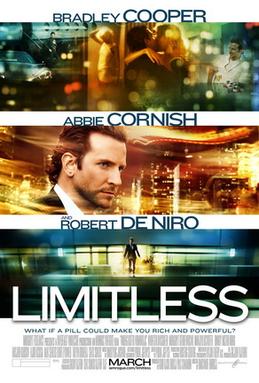There is some substance to his argument. Even Richard Dawkins thinks it's hard to refute. Because you can't use evidence. If you were in the Matrix, or were Captain Pike in the Menagerie, or just a brain in a jar, being fed a virtual reality that someone had chosen for you, you wouldn't know.* And you would have no way of finding out. Unless there was a fault with the virtuality - like a computer glitch - the available evidence would tell you that your virtual reality was actual reality.
So is real real or not? The honest answer is that we don't know, but it's probably better to act as if it is. Which, thankfully, is the default philosophical position of everyone who's never worried about it.
That would be to my mind a Christian approach to it. There may not be objective evidence we can point to that proves there is anything beyond this life. But there is plenty of subjective evidence. People talk about having an experience of God. And we can see their lives transformed in many cases. I believe that anyone can find that opening your mind to the possibility of God being real is an important first step. An honest seeking, followed by wilfully putting ourselves into God's hands is all that God is after. Then comes a knowing - a deep sense that God is at least as real as anything else.
I can't help feeling that Bostrom's scenario is a little too tied into current ways of understanding technology. Strip that away and there is something paralleling common theistic belief about the world.
I believe that we do live in a specially created reality. That we were put into a situation where it all seems quite real, but that there is actually more to it than meets the eye. There is a programmer, whom we call God. God created everything, including our consciousness and the environment that supports it; and takes an interest in what we do: how we respond to each other and to God.
A further parallel is what we believe about the afterlife. If you enter a virtual reality, such as an immersive video game, you will probably at some point get yourself killed. Except that's not the end. You just start again. Or maybe if you're tired of that game, you find a better one. Because it's not "you" that's died, it's just a character you were controlling for a time. Game Over is not.
And so when we shuffle off this mortal coil, we discover that reality is not what we thought it was. It's absurd to think we had it all worked out. Perhaps that's why there isn't too much in the Bible about it.
Oh dear too much text here already. I'll have to finish this off tomorrow.
Meanwhile, some intensely beautiful words from C.S. Lewis and then some Bible.
“And suddenly all was changed. I saw a great assembly of gigantic forms all motionless, all in deepest silence, standing forever about a little silver table and looking upon it. And on the table there were little figures like chessmen who went to and fro doing this and that. And I knew that each chessman was the idolum or puppet representative of some one of the great presences that stood by. And the acts and motions of each chessman were a moving portrait, a mimicry or pantomine, which delineated the inmost nature of his giant master. And these chessmen are men and women as they appear to themselves and to one another in this world. And the silver table is Time. And those who stand and watch are the immortal souls of those same men and women.”
C.S. Lewis, The Great Divorce, chapter 14
Revelation 21
1 Then I saw a new heaven and a new earth. The first heaven and the first earth disappeared, and the sea vanished. 2 And I saw the Holy City, the new Jerusalem, coming down out of heaven from God, prepared and ready, like a bride dressed to meet her husband. 3 I heard a loud voice speaking from the throne: "Now God's home is with mankind! He will live with them, and they shall be his people. God himself will be with them, and he will be their God. 4 He will wipe away all tears from their eyes. There will be no more death, no more grief or crying or pain. The old things have disappeared." 5 Then the one who sits on the throne said, "And now I make all things new!"
* Captain Pike was in the best ever episode of Star Trek, which was cobbled together using clips from before it got dumbed down. If you knew that, you are a geek.
Brains in jars don't really work - almost the whole human body is required to provide the working environment for one.
Location:Shed







